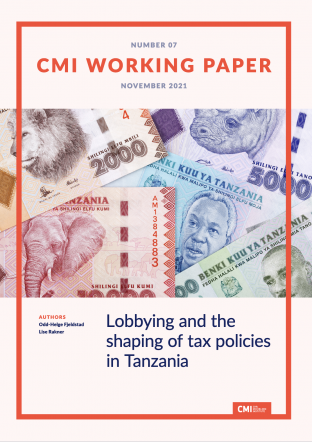This paper explores the role of interest groups in shaping tax policies in Tanzania. Tracing the various stages behind the VAT Act 2014 in Tanzania, weighing the various interests, lobbyists and political actors, the study documents a tax reform outcome that diverted significantly from the draft stage to the final gazette stage. The analysis of the process behind the 2014 VAT Act illustrates how a political context characterized by an institutionalized dominant party state, legitimized by major business interests, was vulnerable to lobbying from interest groups and international consulting firms acting on behalf of business interests. The tax literature has not adequately addressed this critical dimension of lobbying in tax reform processes. Our analysis suggests that lobbyism in poorly regulated developing countries may be much more important than previously assumed in both the academic and policy-oriented literature. Our analysis further underscores the need for better understanding of how the rules of the ‘lobby’ game is affected by uneven power relations between various interest groups.
Join our newsletter!
Sign up to our monthly newsletters for updates on publications, events and tax resources.

